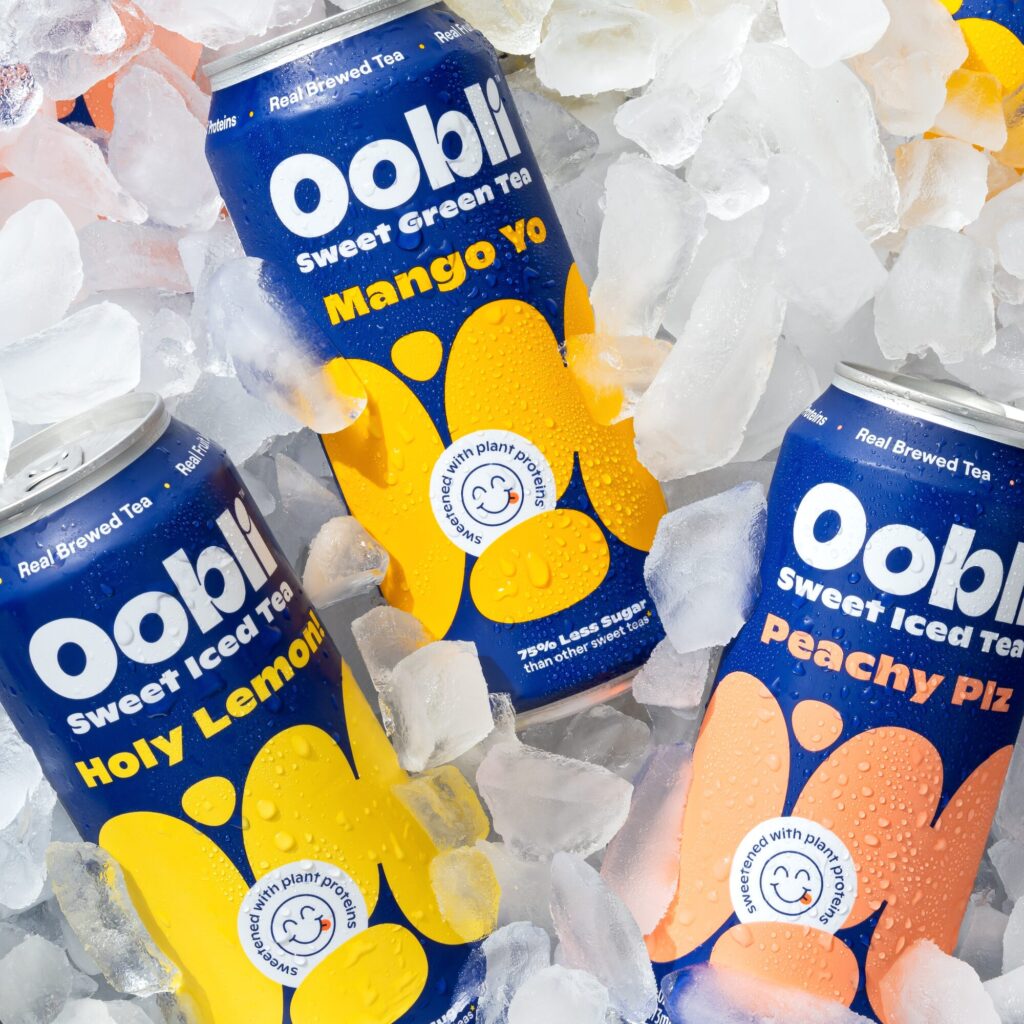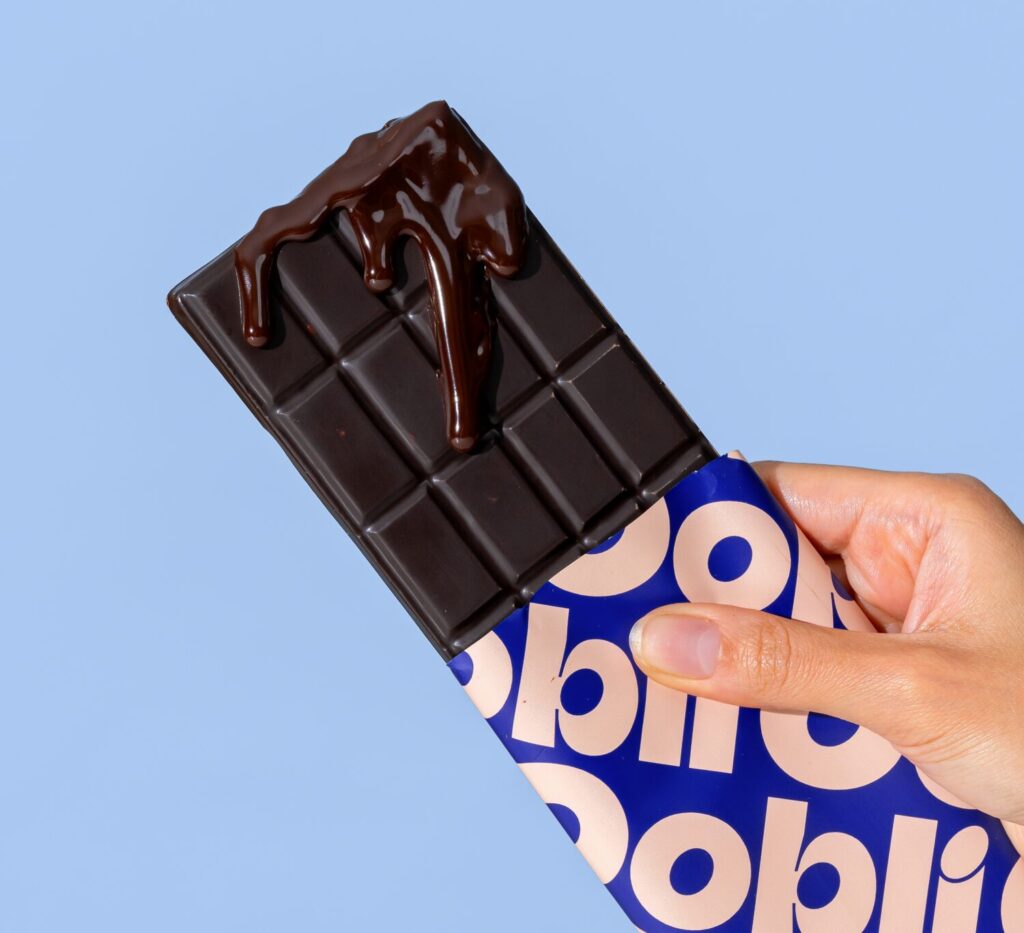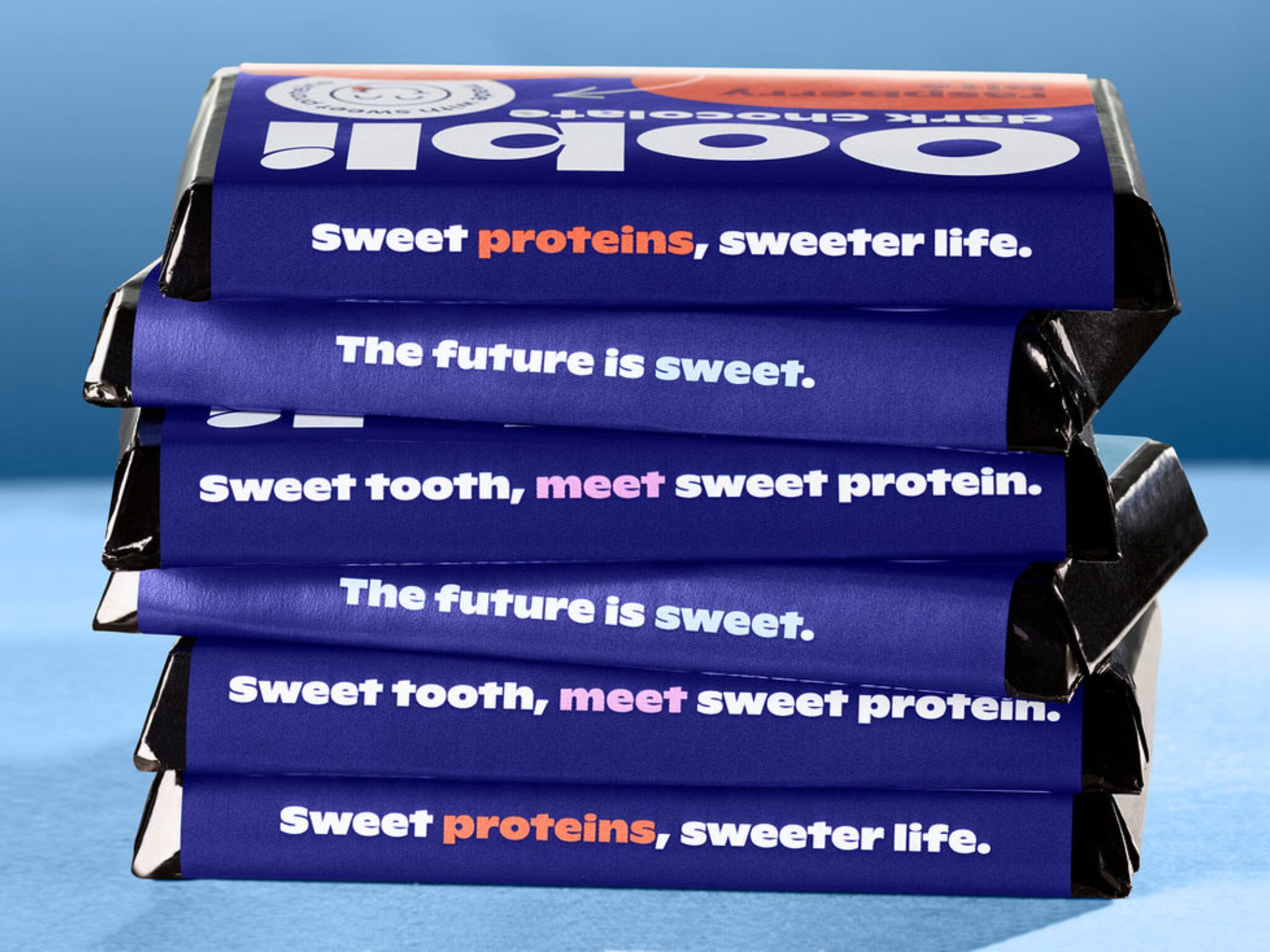Sweet Protein: Oobli Receives FDA GRAS Letter for Game-Changing Precision-Fermented Sugar Alternative
5 Mins Read
Californian food tech startup Oobli has received a ‘no further questions’ letter from the FDA for its Oubli Sweet Protein made from precision fermentation. The ingredient leverages West African fruits to make a sugar alternative that has no impact on blood glucose levels or gut health.
Known for its chocolates and iced teas, Oobli has earned Generally Recognized as Safe (GRAS) status in the US after the FDA sent it a ‘no further questions’ letter, making it the first company to get the seal for a novel sweet protein made from precision fermentation.
The company’s ingredient, Oubli Fruit Sweet Protein (scientifically known as brazzein), is now classed by the FDA as safe for use as a sweetener in food and beverage applications. It will allow Oobli – formerly Joywell Foods – to expand its presence as a gut-healthy, diabetic-friendly sugar alternative that appeals to consumers dismayed by the ill health effects of traditional sugar substitutes like stevia or aspartame.
“Oobli is changing the future of sweetness through the use of sweet proteins as a replacement for traditional cane sugar and other alternative sweeteners like aspartame, sucralose, stevia and erythritol,” said Oobli founder and chief technology officer Jason Ryder.
CEO Ali Wing added: “The ‘no questions’ letter from the FDA is a further testament to the strong potential that sweet proteins have to disrupt our global dependence on sugar and alternative sweeteners.”
Why sugar alternatives are important

On average, Americans eat 17 teaspoons of sugar every day, which is much higher than the daily recommended amount. And this has risen over the last century, with 2021 estimates suggesting sugar and artificial sweetener intake was up by 53% from 1909. Meanwhile, spending on sugar grew by 4% from pre-pandemic levels through to December 2022.
One of the knock-on effects has been the overfarming of sugar cane, which has landed it on the list of the top 10 worst crops globally. But perhaps the most tangible effect relates to health. Sugar is a calorie-rich ingredient, and contributes to America’s obesity epidemic, which plagues 42% of its citizens. Meanwhile, over 11% of US consumers have type 2 diabetes.
But there are signs that attitudes towards sugar are changing. A 2023 survey of over 1,000 Americans by the International Food Information Council (IFIC) revealed that 72% of Americans are trying to avoid or limit sugar intake, with a specific focus on reducing added sugars. For about two in five respondents, this was to lose weight, or avoid gaining it.
Sugar alternatives are a $7B market, but many of the options Ryder mentioned above are riddled with controversy. Aspartame, for instance, was classed as a possible carcinogen by the WHO last year, while erythritol is linked to increased risks of heart disease and stroke. In the IFIC poll, just 15% of respondents believed aspartame was safe, versus 44% who found it unsafe. This is why it comes as no surprise that more people prefer conventional sugar to low- or no-calorie alternatives.
Some startups are trying to change that. Supplant Foods, which makes good-for-you sugars from plant fibres, and Zya, which converts fibre into sugar, are just a couple of examples. Others, though, are focusing on brazzein, a sweet protein found in the West African fruit of Oubli, which includes the likes of Cweet, Sweegen, Novel Foods Group, and, of course, Oobli.
People in West Africa have been eating Oubli for years, describing it as “so sweet it makes children forget their mother’s milk”, according to Oobli. Brazzein is said to be between 500 to 2,000 times sweeter than sucrose, but due to the remoteness of the locations, harvesting enough for large-scale production isn’t currently possible.
A sweetener that doesn’t raise your blood sugar

This is where precision fermentation comes in. Oobli, which has raised $31.9M in total funding, isolates the genes responsible for sweet proteins and inserts them into yeast, which is added to a fermentation tank filled with a nutrient-rich broth. The yeast then feeds on the sugars in the broth to produce the sweet proteins, which are filtered from the broth and purified.
“Sweet proteins are a class of proteins that deliver a sugar-like sweetness but don’t affect blood sugar, insulin or the gut microbiome,” explained Ryder. It’s a sugar alternative that has zero impact on your glycemic index or blood glucose, making it highly attractive to people with type 2 diabetes, and even helping those with type 1 diabetes manage their levels much better. Plus, in the era of semaglutide drugs like Ozempic and Wegovy, Oobli’s ingredient provides consumers with a much simpler option to facilitate weight management, without all the side effects.
Essentially, these sweet proteins bind to and activate the same taste receptors on your tongue that sugar does, enabling us to “taste sugar without ingesting sugar”, instead digesting and metabolising sweet proteins just like any other protein. It needs to be noted that the portion sizes of brazzein are too small to have an impact on your protein count, but the real kicker is the fact that it doesn’t trigger blood sugar or upset your gut and stomach.
“The Oubli Fruit Sweet Protein can be safely used in various foods with support from the general scientific community and the FDA,” said Wing. “It can replace 70% or more of sugar in most food and beverages such as sodas, teas, baked goods and more, making the opportunities to reduce our sugar consumption endless.”
Research shows that 1g of brazzein is equivalent to 2,000g of sugar, which highlights the potency of such sweet proteins. Oobli has already released sweet iced teas and chocolate bars (some of which are vegan as well) that have over 70% less sugar than conventional options on the market. And it’s not all about the health aspect either – for every 1% reduction in sugar production, the company claims to save 650,000 acres of land.
Armed with the FDA approval, Oobli is now looking to partner with manufacturers to develop the next generation of sweet foods with its Oubli Fruit Sweet Protein, which it refers to as “nature’s candy”.



